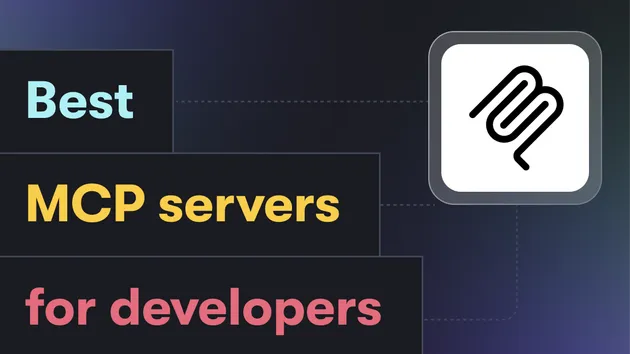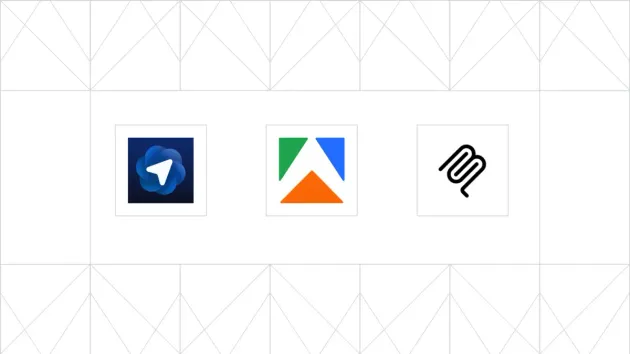Puppeteer MCP
Pricing
from $0.01 / 1,000 results
Puppeteer MCP
AI-powered browser automation via Model Context Protocol. Enable Claude, ChatGPT, and other AI assistants to control browsers, scrape data, and automate web tasks through natural language.
Pricing
from $0.01 / 1,000 results
Rating
0.0
(0)
Developer

Meysam
Actor stats
0
Bookmarked
7
Total users
1
Monthly active users
2 months ago
Last modified
Categories
Share
AI Browser Automation - MCP Server for Claude & ChatGPT
Enable AI assistants to control web browsers through natural language. This Apify Actor is a Model Context Protocol (MCP) server that gives Claude, ChatGPT, and other AI agents 17 browser automation tools to scrape data, fill forms, take screenshots, and automate any web task.
What is MCP Browser Automation?
This Actor transforms your AI assistant into a browser automation expert. Instead of writing complex scripts, describe what you need in plain English—your AI handles everything using a real Chrome browser.
Example conversation with Claude:
"Go to example.com, extract all product prices, and take a screenshot of the pricing table"
Claude automatically uses the right tools (navigate → extract → screenshot) and returns the results.
Key Features
| Feature | Description |
|---|---|
| 17 Browser Tools | Complete automation: navigate, click, type, screenshot, extract, scroll, and more |
| Session Persistence | Browser state maintained across multiple tool calls |
| Concurrent Browsers | Up to 10 parallel browser instances for faster scraping |
| Real Chrome Engine | Full JavaScript support—handles React, Vue, Angular, SPAs |
| Dataset Storage | Large outputs (screenshots, HTML) automatically stored in Apify Dataset |
| No Coding Required | Describe tasks in natural language to your AI assistant |
What Data Can You Extract?
| Data Type | Examples | Use Cases |
|---|---|---|
| Product Data | Prices, descriptions, reviews | Price monitoring, market research |
| Contact Info | Emails, phone numbers, addresses | Lead generation, prospecting |
| Content | Articles, posts, comments | Content aggregation, research |
| Screenshots | Full page or specific elements | Visual monitoring, documentation |
| Dynamic Content | Lazy-loaded, infinite scroll, SPAs | Modern web apps, JavaScript-heavy sites |
Quick Start: Connect to Claude Desktop
Step 1: Start the Actor on Apify
- Click "Try for free" on the Actor page
- Keep default settings (or adjust timeout for slow sites)
- Click "Start"
- Copy the Actor endpoint URL from run details
Step 2: Configure Claude Desktop
Find your Claude config file:
- macOS:
~/Library/Application Support/Claude/claude_desktop_config.json - Windows:
%APPDATA%\Claude\claude_desktop_config.json - Linux:
~/.config/Claude/claude_desktop_config.json
Add this configuration:
or run the CLI:
Restart Claude Desktop. Done!
Step 3: Start Automating
Try these prompts with Claude:
- "Navigate to reddit.com and extract the top 5 post titles"
- "Go to example.com/pricing and take a screenshot"
- "Fill the contact form with name 'John' and email 'john@test.com'"
All 17 Browser Tools
Your AI automatically selects the right tool based on your request.
Navigation
| Tool | What It Does |
|---|---|
navigate | Go to any URL, wait for page load |
goBack | Navigate back in browser history |
goForward | Navigate forward in browser history |
getCurrentUrl | Get current page URL and title |
Interaction
| Tool | What It Does |
|---|---|
click | Click elements (CSS selector, XPath, or text match) |
type | Type text into inputs with optional delay |
hover | Hover over elements to trigger tooltips/menus |
scroll | Scroll page or scroll to specific element |
select | Choose options from dropdown menus |
pressKey | Press keyboard keys (Enter, Tab, Escape, etc.) |
Data Extraction
| Tool | What It Does |
|---|---|
screenshot | Capture full page or element screenshots |
getContent | Get page content as HTML, text, or markdown |
extract | Extract text/attributes from single or multiple elements |
evaluate | Execute custom JavaScript on the page |
waitForSelector | Wait for elements to appear before acting |
Session Management
| Tool | What It Does |
|---|---|
listSessions | View all active browser sessions |
destroySession | Close a specific browser session |
Input Configuration
Customize the Actor for your needs:
| Setting | Default | Description |
|---|---|---|
headlessMode | true | Run browser without UI (disable for debugging) |
defaultTimeout | 30000 | Max wait time per operation (ms) |
maxConcurrency | 1 | Parallel browser instances (1-10) |
logLevel | info | Logging verbosity (debug/info/warn/error) |
sessionTimeoutMs | 1800000 | Idle session timeout (30 min default) |
viewportWidth | 1280 | Browser viewport width (px) |
viewportHeight | 720 | Browser viewport height (px) |
Recommended for slow websites:
Recommended for faster scraping:
Output Examples
Navigation Result
Data Extraction Result
Screenshot Result (Large Images Stored in Dataset)
How Much Does It Cost?
This Actor runs on Apify's platform. Pricing will be Pay Per Event (PPE) based on tool usage.
Current model (until PPE is finalized):
- Compute Units: ~$0.50/hour of browser runtime
- Free tier: 5 hours/month included with Apify account
Estimated costs:
| Usage | Operations | Estimated Cost |
|---|---|---|
| Light | ~50 pages/day | Free tier |
| Medium | ~500 pages/day | $5-15/month |
| Heavy | ~5,000 pages/day | $50-100/month |
Cost tips:
- Use
maxConcurrency: 1for simple tasks - Increase concurrency for time-sensitive bulk scraping
- Screenshots and full-page content use more resources
Integrations
Claude Desktop (Recommended)
Best native MCP support. See Quick Start above.
ChatGPT & Other AI Assistants
Any AI supporting the Model Context Protocol can connect. Check your AI's documentation for MCP integration.
Apify API
Integrate directly into your applications:
Apify Integrations
Connect scraped data to 1000+ apps:
- Google Sheets - Auto-populate spreadsheets
- Zapier & Make - Trigger workflows
- Slack & Email - Get notifications
- AWS S3, Dropbox - Export to cloud storage
FAQ
Troubleshooting
"Element not found" errors
- Ask AI to wait first: "Wait for the page to load, then click..."
- Use more specific descriptions: "Click the blue 'Submit' button in the footer"
- Increase
defaultTimeoutto 60000ms
Timeout errors
- Page takes longer than default 30 seconds
- Increase timeout in Actor input
- Check if site requires authentication
"Failed to acquire browser" errors
- All browsers in pool are busy
- Increase
maxConcurrencyor wait for tasks to complete
Connection refused
- Ensure Actor is running in Apify Console
- Verify endpoint URL matches the running Actor
- Restart Claude Desktop after config changes
Is Web Scraping Legal?
Web scraping of public data is generally legal. This Actor operates ethically:
- ✅ Only extracts publicly visible data
- ✅ Respects robots.txt guidelines
- ✅ Does not bypass authentication or CAPTCHAs
- ✅ Does not collect private user data
Your responsibility: Review each website's Terms of Service. For questions about your specific use case, consult legal counsel.
Read more: Is web scraping legal? (Apify Blog)
Privacy & Security
- Isolated execution: Each run uses a sandboxed Docker container
- No data persistence: Browser data deleted after each run
- Non-root container: Runs as unprivileged user
- Limited permissions: Actor only accesses its own storages
- Session cleanup: Automatic cleanup of expired sessions
Support
- Issues: GitHub Issues
- Apify Support: Contact Apify
- MCP Documentation: modelcontextprotocol.io
- Apify Docs: docs.apify.com
What is MCP?
The Model Context Protocol (MCP) is an open standard by Anthropic that lets AI assistants connect to external tools. Think of it as "USB for AI"—a universal way for AI models to access capabilities beyond their training.
You don't need to understand MCP to use this Actor. Your AI handles all communication automatically.
License
MIT License - see LICENSE for details.




